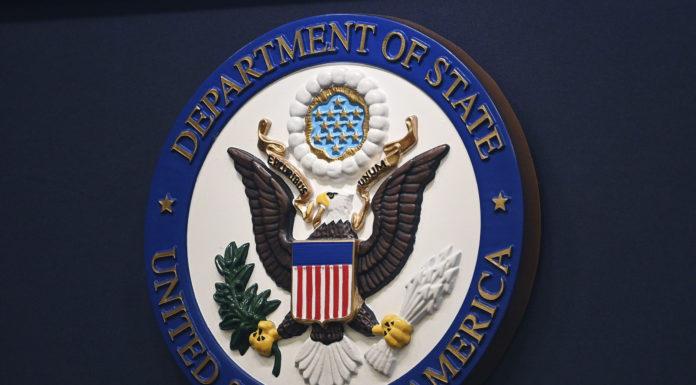(Ken Silva, Headline USA) A shady State Department-funded network colluded with corporate media outlets to pressure Twitter into censoring conservatives and other users on the platform.
This is according to journalist Matt Taibbi’s reporting on the latest batch of Twitter Files, the trove of internal company documents that reveal the company’s censorship decisions over the last several years.
Taibbi’s new report focuses on the State Department’s “Global Engagement Center,” which Twitter owner Elon Musk earlier this month deemed the “worst offender in U.S. government” when it comes to censorship and media manipulation.
Taibbi’s reporting explains why.
1. TWITTER FILES #17
New Knowledge, the Global Engagement Center, and State-Sponsored Blacklists pic.twitter.com/8LuoKY9zzA— Matt Taibbi (@mtaibbi) March 2, 2023
According to Taibbi, the GEC funded groups such as the Atlantic Council’s Digital Forensic Research Lab, which in turn compiled blacklists of Twitter accounts that were supposedly tied to foreign disinformation campaigns. The Digital Forensic Research Lab sent those blacklists to Twitter so that the company could deactivate the accounts listed.
The problem was, the lists were extremely inaccurate, according to Taibbi.
For instance, the Digital Forencic Research Lab sent Twitter a list of 40,000 accounts of being “paid employees or possibly volunteers” of India’s Bharatiya Janata Party. “But the list was full of ordinary Americans, many with no connection to India and no clue about Indian politics,” Taibbi said.
In another GEC list of suspected accounts linked to China, Taibbi quipped that it took him “about negative ten seconds to find non-Chinese figures.”
GEC’s “Chinese” list included multiple Western government accounts and at least three CNN employees based abroad.
Taibbi also pointed out how the GEC blacklists included accounts that weren’t directly linked to foreign governments—but they were listed anyway because they retweeted or shared news from foreign sources.
“As one Twitter exec put it: ‘If you retweet a news source linked to Russia, you become Russia-linked,’ does not exactly resonate as a sound research approach,’” Taibbi said.
To Twitter’s credit, the company did not blindly follow the GEC’s blacklists, Taibbi noted. Former Twitter executive Yoel Roth even commented that the GEC’s lists were “a total crock.”
However, GEC found an “easier mark” to spread its dubious blacklists: the mainstream media.
“GEC’s game: create an alarmist report, send it to the slower animals in journalism’s herd, and wait as reporters bang on Twitter’s door, demanding to know why this or that ‘ecosystem’ isn’t obliterated,” Taibbi said.
Taibbi’s reporting didn’t indicate whether Twitter bowed to media pressure. Either way, the GEC blacklists resulted in a slew of media articles about “Russian bots” and “Russian propagandists.”
“GEC and New Knowledge littered the media landscape with flawed or flat-out wrong news stories,” Taibbi said. “Exacerbating matters, Americans in both cases paid taxes to become the subject of these manipulative operations.”
Taibbi noted that GEC’s nearly $100 million budget is up for reauthorization this year.
“Can we at least stop paying to blacklist ourselves?” he asked.
Taibbi is set to testify about the Twitter Files on March 9 at the second meeting of the Weaponization Subcommittee—a congressional panel formed to investigate the weaponization of the federal government.
Ken Silva is a staff writer at Headline USA. Follow him at twitter.com/jd_cashless.

